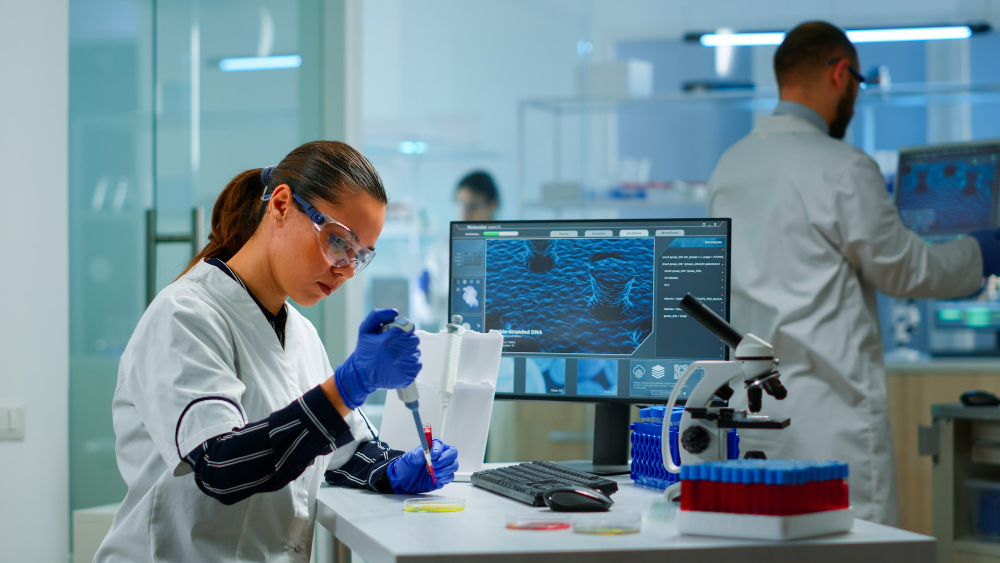In the dynamic landscape of healthcare, clinical trials are the linchpin in the quest for new medical breakthroughs, serving as the critical bridge between research and real-world applications. With the dawn of cutting-edge technologies, these trials are being reimagined, opening doors to faster, more efficient, and patient-centric research methodologies.
That said, this guide delves into the transformative power of these technologies, exploring how they are reshaping every facet of clinical trials—from patient recruitment to data analysis and beyond.
Table of Contents
1. Clinical Trials Software Application Programming Interfaces (APIs)
Clinical Trials Software API is revolutionizing the integration and interoperability of various digital tools and platforms used in clinical research. By enabling data to flow freely and securely between these systems, these software APIs enhance the efficiency of data collection, analysis, and management.
They support real-time data sharing, reduce redundancy, and ensure that researchers, clinicians, and trial participants are always informed with the most current data. This level of integration is pivotal for modernizing clinical trials, making them more agile, scalable, and capable of handling the complexities of today’s medical research landscape.
2. Electronic Data Capture (EDC) Systems
Electronic Data Capture (EDC) Systems are at the forefront of modernizing data collection within clinical trials. By facilitating the direct input of data into electronic systems, EDC platforms dramatically reduce the margin for human error and eliminate the cumbersome need for paper-based records.
These systems not only elevate the quality of data through enhanced accuracy and integrity but also provide real-time access for continuous monitoring. Furthermore, EDC systems streamline the entire data management process, making it easier for researchers to organize, analyze, and share information, thus accelerating the pace at which clinical trials can move forward.
3. Wearable Technology
Wearable technology is reshaping clinical research by offering unprecedented opportunities for continuous health monitoring. Devices such as smartwatches and fitness trackers capture a vast array of health metrics—including heart rate, sleep patterns, and physical activity levels—providing researchers with a continuous stream of real-time, objective data.
This innovation facilitates a more nuanced understanding of patient health outside the clinical setting, leading to improved monitoring protocols, enhanced patient safety, and, ultimately, more reliable trial outcomes.
4. Mobile Health Applications
Mobile health applications (mHealth apps) are pushing the boundaries of traditional clinical trial models by enabling remote monitoring and bolstering patient engagement. These apps serve multiple functions: reminding patients to take medications, tracking medication adherence, and facilitating direct communication with research teams.
By integrating seamlessly into patients’ daily lives, mHealth apps improve the quality and consistency of data collection and play a crucial role in maintaining high participant retention rates, a perennial challenge in clinical trials.
5. Artificial Intelligence (AI) and Machine Learning (ML)
Artificial Intelligence and Machine Learning are revolutionizing clinical trials by harnessing vast datasets to uncover insights and patterns beyond human reach. These technologies enhance trial design and execution through predictive analytics, optimizing patient recruitment by intelligently analyzing electronic health records to identify suitable candidates.
6. Blockchain Technology
Blockchain technology introduces a paradigm of security and transparency in the management of clinical trial data. By creating a tamper-proof ledger of trial data, blockchain technology ensures the integrity and confidentiality of sensitive information.
It facilitates seamless data sharing among authorized stakeholders while maintaining compliance with stringent regulatory standards, thereby building trust and reliability in clinical research processes.
7. Cloud Computing
Cloud computing has been a game-changer in how data is stored and accessed in clinical trials. It offers a centralized platform for data management, supporting the collaborative design and execution of trials.
With cloud computing, data is securely stored on remote servers, ensuring that authorized users can access necessary information from anywhere in the world. This is especially beneficial for multinational clinical trials, where coordination and data integrity are paramount.
8. Adaptive Trial Designs
Adaptive trial designs introduce a level of flexibility previously unseen in clinical research. By allowing for protocol modifications based on interim data analyses, these designs optimize resource allocation towards the most promising therapeutic interventions. This adaptability not only makes clinical trials more cost-effective but also significantly shortens the time to bring new treatments to market.

9. Telemedicine
Telemedicine has emerged as a cornerstone technology in enabling remote clinical trials, particularly highlighted during the COVID-19 pandemic. It allows for patient consultations, monitoring, and follow-ups to be conducted virtually, expanding access to trials for a wider demographic and ensuring that research can continue uninterrupted under circumstances that would traditionally halt progress.
10. Virtual Reality (VR) and Augmented Reality (AR)
Virtual and Augmented Reality technologies are being explored for their potential to enhance patient education and simulate real-world environments within clinical trials. By providing immersive experiences, VR and AR can help patients better understand their treatments or procedures, making the trial participation process more engaging and less daunting. This innovative approach holds promise for improving patient compliance and satisfaction.
11. Gene Editing Technologies
Gene editing technologies, particularly CRISPR-Cas9, represent a frontier in clinical trials targeting genetic disorders and beyond. By enabling precise modifications at the genetic level, these technologies offer potential cures for diseases previously deemed untreatable. The ethical and therapeutic implications of gene editing are vast, promising a new era of personalized medicine and treatment development.
12. Internet of Things (IoT) In Clinical Trials
The Internet of Things (IoT) introduces a network of connected devices that communicate and exchange data, offering new avenues for monitoring and managing patient health during clinical trials.
IoT devices, ranging from smart inhalers to connected glucose monitors, provide continuous, real-time data collection, enabling a more dynamic response to patient needs and conditions. This connectivity not only enhances the accuracy and reliability of trial data but also improves patient engagement and compliance by facilitating more interactive and responsive trial protocols.
13. Big Data Analytics
Big Data Analytics is reshaping the landscape of clinical trials by harnessing the immense volumes of data generated during research. This technology allows for the analysis of complex datasets that include patient health records, trial results, and genetic information, providing insights that can improve trial design, patient selection, and outcome prediction.
By leveraging big data, researchers can identify trends and correlations that would be impossible to detect through traditional analysis methods, leading to more informed decision-making and the potential for personalized medicine approaches.
14. Digital Biomarkers
Digital biomarkers are at the cutting edge of clinical research, offering novel ways to measure and track disease progression and patient health using digital devices. These biomarkers are derived from data collected through wearable technologies, smartphone applications, and other digital tools, providing objective, quantifiable indicators of biological processes or pharmacological responses.
Furthermore, they have the potential to revolutionize clinical trials by enabling more precise patient monitoring, earlier detection of treatment effects, and personalized intervention strategies, thereby streamlining the path to treatment approval and improving patient outcomes.
Conclusion
The ongoing adoption and integration of these technologies into clinical trials is not just an improvement but a revolution, promising a future where the barriers to medical discovery are continually diminished. This transition towards a more technologically integrated and patient-focused approach to clinical trials is not only necessary but inevitable, paving the way for a new chapter in the story of human health and wellness.
Featured image by DC Studio on Freepik




